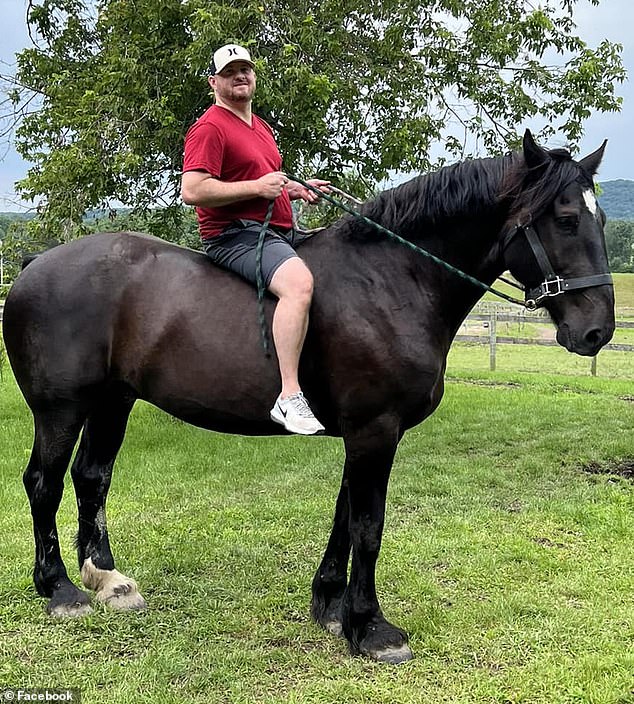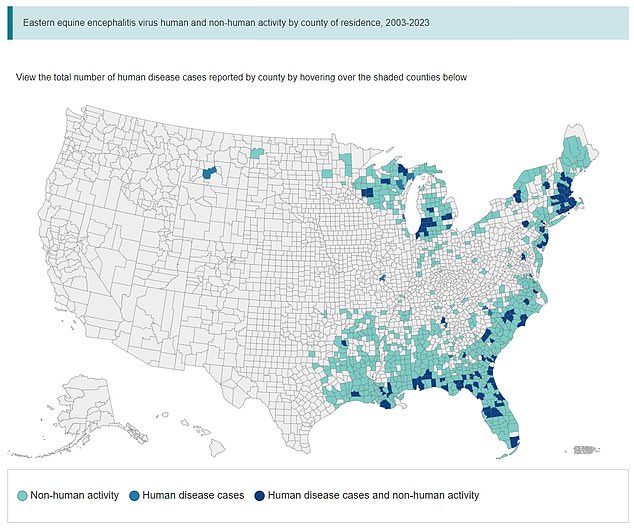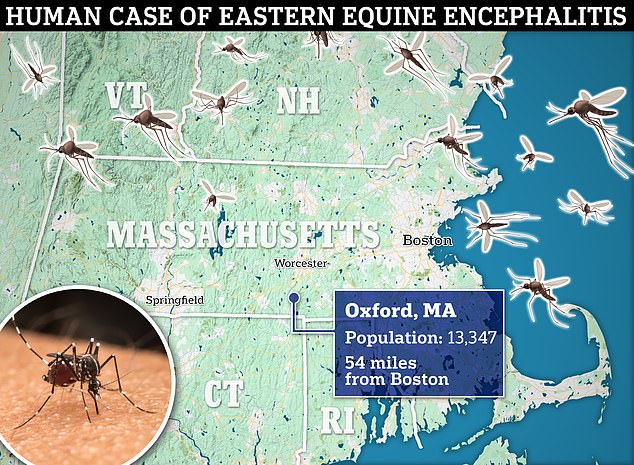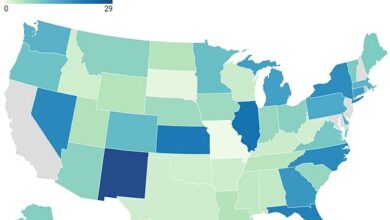Pictured: 41-year-old New Hampshire man who died from the terrifying mosquito-borne Triple E disease








A healthy New Hampshire man has died after a weeks-long battle with a mosquito-borne virus that primarily affects horses.
Steven Perry, 41, of Hampstead — about 40 miles outside Boston — became the first person in the state in 10 years to be infected with Eastern Equine Encephalitis (EEE).
He was rushed to hospital on August 12, but was pronounced dead on August 19. An autopsy revealed that he had been infected with ‘Triple E’, an infection he had probably contracted from a mosquito bite.
Her sister Susan paid tribute to her brother, who had no underlying health conditions, saying he was funny, cheerful and the ‘glue of the family’.

Steven Perry, 41, of Hampstead, New Hampshire, died after a seven-day battle with Eastern Equine Encephalitis

He was rushed to hospital on August 12 after his family noticed him acting strangely, but was pronounced dead on August 19 – a week later
The outbreak comes amid growing concerns about mosquito-borne diseases in New England, with 10 counties in Massachusetts imposing curfews to protect against the virus.
Several cities in the US are also using pesticides to deter mosquitoes, which are increasingly known to spread disease.
And former White House Covid physician Anthony Fauci said he was hospitalized earlier this month with West Nile virus, which is also spread by mosquitoes.
The family wrote the following in an obituary: ‘It is with a heavy heart that the family must acknowledge that Steven left his loved ones far too early after being struck by a sudden and rare brain infection.
‘Steven was known for his kindness, sense of humor and unwavering love for his family and friends.
‘He was a devoted son, brother, uncle and friend who brought joy and laughter to all who knew him.


Mr. Perry is survived by his mother, girlfriend, three siblings and six nieces and nephews. He is pictured above. Mr. Perry was also described as an avid golfer
Steven was very proud of his career as Director of Hampstead Nursing Services, where he worked with his mother for many years.
‘He was also an avid sports fan with an unparalleled knowledge and passion for sports.
‘He was an avid golfer and enjoyed the game even more when playing with his nephews.’
It is not clear what symptoms Mr Perry had, or when and where he became infected.
But humans get the disease through mosquito bites. These mosquitoes pick up the virus from birds and normally transmit it to horses. This is why it is called Eastern Equine Encephalitis, or equine brain disease.
Mr. Perry is survived by his mother, girlfriend, three siblings and six nieces and nephews.
He died after treatment at Mass General Hospital in Boston, Massachusetts.
EEE is a rare disease among humans, with about 11 cases and multiple deaths per year in the US, usually occurring between July and September.
By comparison, more than a hundred cases are registered in horses each year.
So far this year, there have been four cases and one death, with each in Massachusetts, New Jersey, New Hampshire, Vermont and Wisconsin.
Up to a third of patients die from the virus. The virus is often fatal because it spreads quickly and attacks the patient’s nerve cells, causing a strong immune response.

The map above shows the provinces where EEE has been detected between 2003 and 2023. The dark blue areas represent places with human cases

The number of cases of EEE appears to have increased slightly since the Covid pandemic, although experts say the virus is still rare in humans

There are also no specific vaccines or treatments against the virus.
It is a neurotropic virus, a virus that attacks nerve cells. It falls into the same category as rabies, West Nile virus and Zika virus, among others.
In the early stages, patients may experience fever, headache and joint pain.
But the virus quickly spreads to the brain, causing inflammation – or brain swelling – that can lead to seizures, altered mental status and paralysis.
Officials say many people who survive the infection are left with severe brain damage and require around-the-clock care for the rest of their lives.
The best way to avoid the virus is to apply mosquito spray to prevent mosquito bites.
It is the first human death from the disease in New Hampshire since 2014. So far this summer, EEE has been detected in one horse in New Hampshire and seven groups of mosquitoes.




